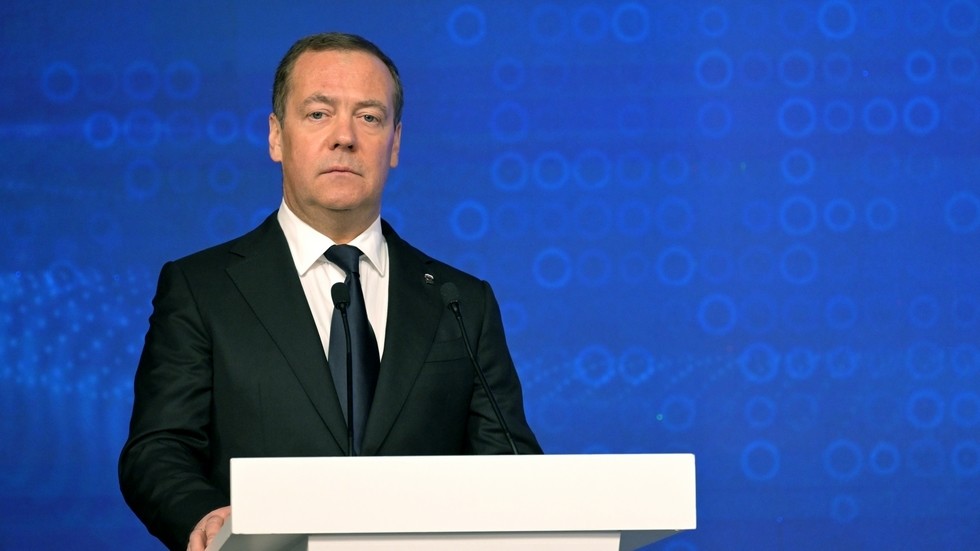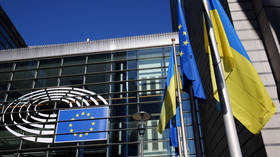
However, they could lead to “more serious” bilateral agreements and a potential NATO base in Ukraine, Dmitry Medvedev says

Former Russian President Dmitry Medvedev. © Sputnik
Western security guarantees for Ukraine are themselves useless but could pave the way for a NATO military base in the country, which could trigger a direct clash with Moscow, former Russian President Dmitry Medvedev said on Monday.
The security declaration, which was first adopted by members of the G7 group in July, promises military assistance to Kiev, as well as frameworks for enhancing Ukraine’s defense industrial base and intelligence sharing. Moscow has denounced the document as an “encroachment on Russia’s security.”
Medvedev, who now serves as deputy chairman of Russia’s Security Council, called Kiev’s plan to convince the EU to provide it with security guarantees a new push “to create an anti-Russian consensus.”
At the same time, he suggested that the declaration “has no added value whatsoever.” “This is just a public statement, which means it is a useless scrap of paper,” he said.

Read more
According to Medvedev, however, the document paves the way for the signing of bilateral security agreements between Kiev and its Western backers. Those deals could lead to arms production cooperation, military training, and other programs beneficial to the “neo-Nazis” in Kiev, he said.
Such a deal could even entice some “crazy” Western country to set up a military base in Ukraine, he added. “Here’s the drill: we won’t take you into NATO, we don’t want war with Russia, but on an individual basis, do whatever you like.”
This could open the way to a large-scale conflict involving a NATO country and Moscow, Medvedev believes. “When Russia strikes such a base – and this will inevitably happen because the military personnel of the base came specifically to fight us – will the alliance countries be ready for a collective response?” he asked.
The ex-president suggested that in this particular case Article 5 of the NATO Treaty – which stipulates that an attack on one member of the bloc is an attack on the entire alliance – leaves “a lot of wiggle room.” NATO could “respond together, or could leave the country that owns the base in Ukraine to go at it alone,” while the retaliation itself could be by military or other means.
The ex-president’s comments come after Andrey Sibiga, the deputy head of Ukrainian President Vladimir Zelensky’s office, said that six EU members – Austria, Croatia, Poland, Hungary, Slovakia, and Malta – have yet to support security guarantees for Kiev, adding that he was sure that they would eventually get on board.




